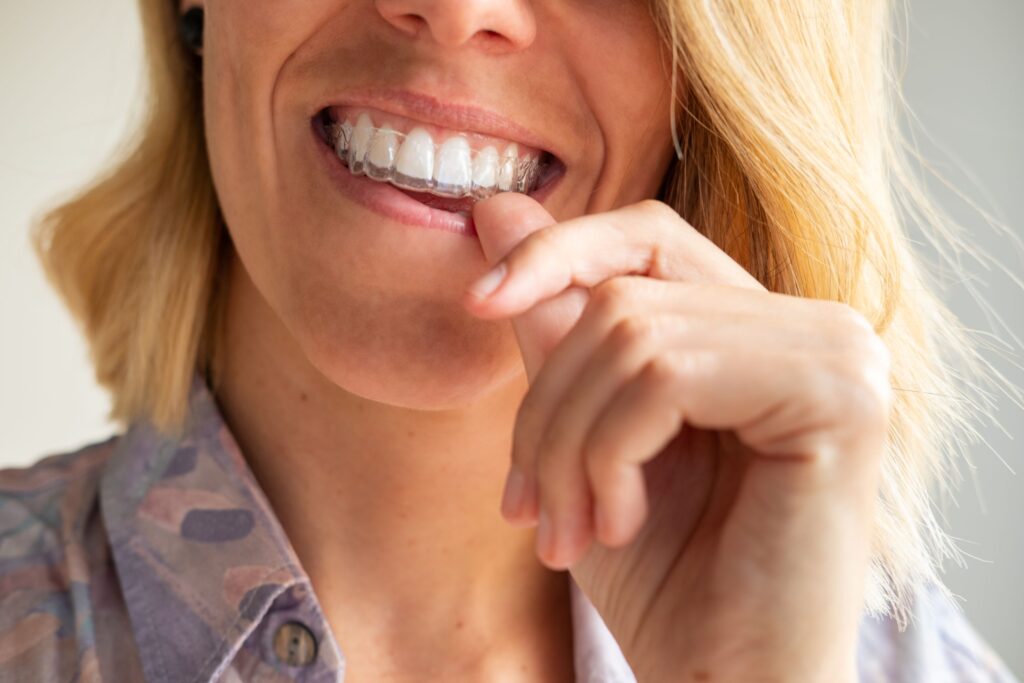
Did you know that grinding your teeth can damage your dental health? Unfortunately, all the added pressure from constantly clenching can unevenly and prematurely wear down your enamel. This leaves you more vulnerable to issues like tooth decay and gum disease.
Not only that, but it can also push your teeth out of alignment, which can cause TMJ (temporomandibular joint) disorders and other concerns. Your dentist can gently straighten your smile with Invisalign, but will your unconscious habit of biting down hinder your treatment progress? Keep reading to find out!
What is Invisalign?
Unlike traditional braces, Invisalign can shift your teeth without leaving you feeling self-conscious about unsightly metal brackets bonded in place. Instead, this alternative treatment relies on clear plastic trays that fit over them to reposition them over a designated period.
You wear the trays for 22 hours daily to prevent your teeth from reverting. Then, every one to two weeks, your dentist provides a new set to switch to. The plastic material isn’t as durable as you might think because it’s not intended to be worn for very long. As a result, many patients worry that their bruxism, or chronic teeth grinding, will ruin their aligners and interrupt their treatment timeline.
Can I Get Invisalign with Bruxism?
Yes, it’s possible to straighten your grin with Invisalign despite the subconscious habit of grinding your teeth. In fact, in many cases the clear aligners act as a buffer between your upper and lower arch to protect your pearly whites. The soft plastic shields them by cushioning them from the added stress of constantly clenching, much like a nightguard or mouthguard does. You should be aware that bruxism can wear down your aligners faster than patients without this condition. However, this may not detract from your treatment progress because they’re not supposed to be worn for more than a couple of weeks, anyway.
Furthermore, Invisalign can also address jaw misalignments resulting from TMJ disorders associated with bruxism. If you have an overbite, underbite, or other malocclusion, your aligners can be updated to include attachments and bands to adjust your bite.
Will Bruxism Ruin the Result of Invisalign?
Once you’ve completed your orthodontics, you might worry that your bruxism will push your teeth right back out of their proper places. Thankfully, your dentist can provide a retainer that holds them in their new positions long enough for your mouth’s supporting muscles and connective tissues to adjust.
If you’re still unsure whether you’re a valid candidate for Invisalign, the best way to find out is to schedule a consultation with your dentist!
About the Author
Dr. Adriana Zaharie, known fondly as “Dr. Z” has nearly 20 years of experience helping people of all ages build happy, healthy smiles. She earned a Doctor of Dental Surgery (DDS) from the University of Antioquia, and a second Doctorate in Dental Medicine from the Advanced Standing Program at the University of Pittsburgh School of Dental Medicine. Today, she’s committed to continuing education and is a valued member of the Periodontist Study Club and Viva Dental Seminars. She offers a full array of services, including Invisalign, to meet all your needs conveniently under one roof. If you’d like a consultation, you can request one on the website or call (281) 394-4001.
